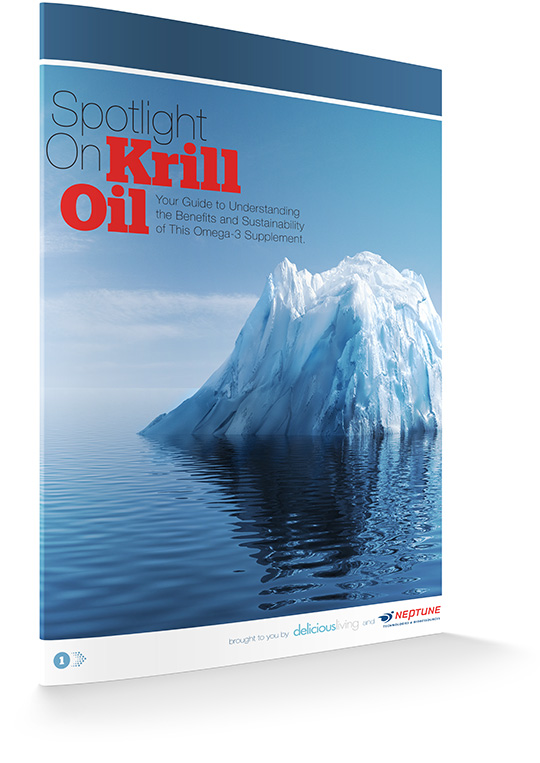With small, easy-to-swallow pills and no fishy aftertaste, krill oil is becoming a hot dietary supplement. Its unique “phospholipid” structure is shown to help the body absorb omega-3 fatty acids better than other sources. And just 13 years after the little red capsules first appeared on the shelves, krill oil supplements now make up 20 percent of the U.S. omega-3 market, outselling flax and rivaling fish oil as health- and eco-conscious shoppers discover their unique benefits.
How exactly does krill oil differ from fish oil? How is it sourced? How does it work? And how can you be sure you are choosing a quality supplement? Get all the answers in our free new guide.
Download your copy below!

Advertisement
